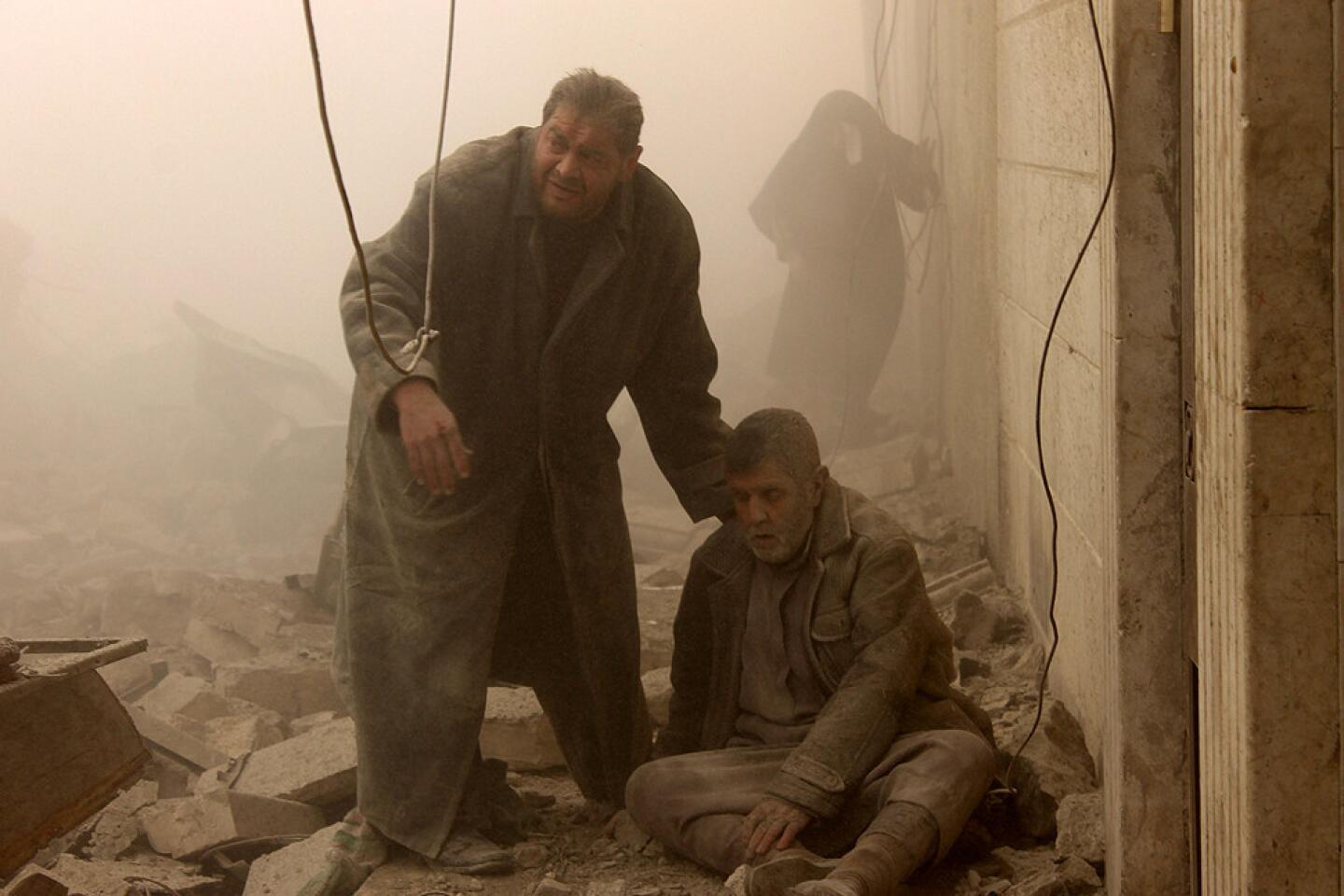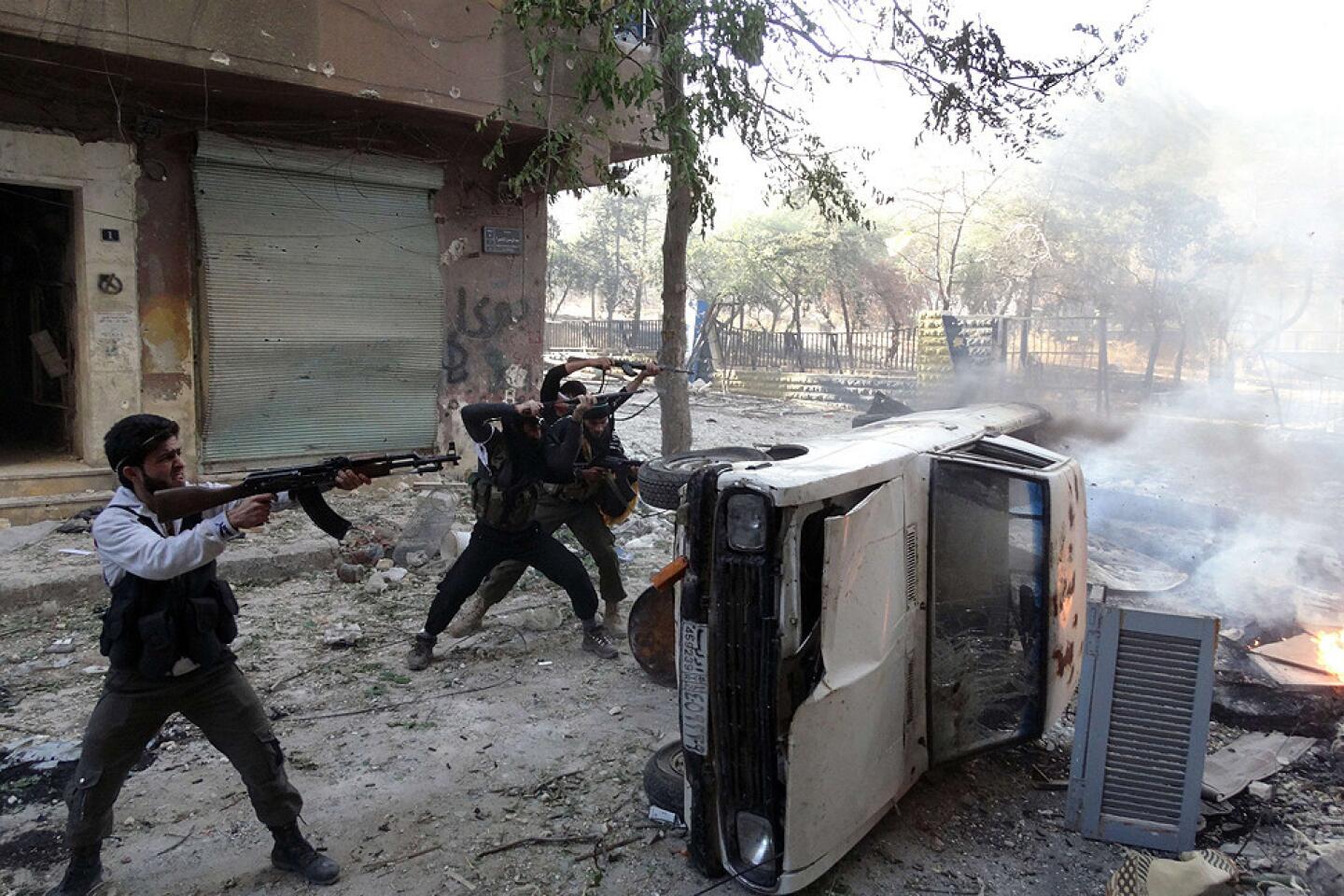How not to deal with Syria
When I first moved to Washington, I drove a beat-up Honda. But, because those were the waning days of the crack era, it was common to have any car broken into, particularly where I lived. This helped me rationalize my habit of keeping my car filthy. I figured a dirty-looking car would make a less tempting target.
One day I parked around Dupont Circle. An enterprising homeless guy asked if he could clean my car for, I think, five bucks. I said something to the effect of “Sorry, buddy, but I keep it dirty so it won’t get broken into.”
He responded: “That’s OK! I wouldn’t do a very a good job!”
I laughed so hard, I gave him a couple of bucks just for the sales effort.
The story came to mind when I heard John Kerry in London on Monday reassure the world that “we’re not going to war.” Rather, it will be “an unbelievably small, limited kind of effort.”
Admittedly, these are difficult times for the taxonomists of Beltway zoology. So far, Republican opponents of President Obama’s Syria plan have been cast in one or both of two categories: partisan flip-floppers or isolationists. Crediting GOP opponents of intervention with the possibility that they could have learned something from the mistakes of the Bush years or that their reluctance stems from the weaknesses of the administration’s arguments is too implausible for many.
It seems particularly difficult for some to get a radar lock on the many foreign policy hawks opposed to a Syria intervention. Neither isolationism nor partisan flip-floppery explains their reluctance.
The hawkish case for striking Syria involves a coherent strategy of ousting President Bashar Assad or damaging his war-making ability to the point where the tide in the Syrian civil war is eventually changed in favor of militants hostile to Iran and amenable to U.S. influence. Removing a state supporter of terror and proxy of Iran (and Russia) is of real strategic value (and real strategic risk, given the Islamist nature of much of the Syrian opposition). Enforcing the taboo against chemical weapons is gravy.
And it is a taboo we’re talking about. Administration officials constantly say we must “enforce international norms” — not laws — as Syria is not actually a signatory to the international treaty banning chemical weapons.
But Obama and Kerry are selling the gravy as if it’s the meal. In private, sources tell me that the White House promises hawks such as Arizona Republican Sen. John McCain a more robust response. But there’s reason to think it’s telling doves something else. Regardless, the administration’s public promise is to keep the strike as symbolic as possible — a “shot across the bow,” in Obama’s words, “incredibly small and limited” in Kerry’s.
But the best explanation of the White House’s thinking comes from a “senior official” involved in the White House’s planning. He told USA Today: “If Assad is eating Cheerios, we’re going to take away his spoon and give him a fork. Will that degrade his ability to eat Cheerios? Yes. Will it deter him? Maybe. But he’ll still be able to eat Cheerios.”
It’s kind of hard to imagine FDR or Churchill vowing to take away Hitler’s Cheerios spoon while “giving” him a fork. And yet, Kerry insists that this is a replay of Munich, with Assad as Hitler.
And the role of, well, not cereal killer but cereal hinderer falls to us.
For this, hawks are supposed to rally around an administration that has demonized and belittled them for years?
Sure, a symbolic shot across the bow would satisfy the president’s unstated but obvious desire to make good on the “red line” he drew last year. But how would it deter Assad or other dictators from using chemical weapons? “Give up your sarin or feel the full brunt of our incredibly small and limited wrath!”
In advance of his Tuesday speech, the president has put himself in a nearly impossible situation (though the Russians may have thrown him a lifeline). By insisting that it’s the “world’s red line,” he invites the question from war-weary skeptics of all parties: If it’s the world’s problem, why does the U.S. have to go to war?
And the response boils down to, in effect, “Don’t worry, we won’t do a very good job.”
jgoldberg@latimescolumnists.com
More to Read
A cure for the common opinion
Get thought-provoking perspectives with our weekly newsletter.
You may occasionally receive promotional content from the Los Angeles Times.




























